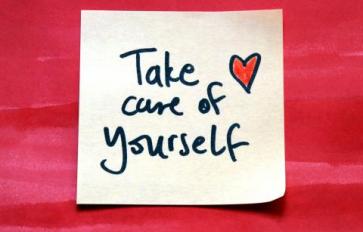
The primary definition of jealousy is “an unhappy or angry feeling of wanting to have what someone else has.” This cannot be a good thing, right? As by definition, it means you are harboring three negative energy emotions in your vibration, often for an extended period. What good could come of something such as anger, unhappiness, and resentment?
Well, nothing and everything. There’s also a second definition of jealousy, which we’ll get to shortly.
Every emotion comes into our awareness to teach us something, even though we are mostly predisposed to denying such an unpleasant and socially unacceptable feeling. Every one of us has at one point in our lives experienced it. Unfortunately, most of us choose to do the easy thing and squash it down into submission without ever checking what it is trying to tell us.
We tend to do this because it is easier to take it and stuff it down into a little box than to face this ugly truth about ourselves. Sometimes we just want what someone else has and sometimes we want to be the only ones to have what we have. This type of thinking is not something anyone wants to admit openly. After all, what kind of person could feel this way?
Truth is, most, if not all, of us.
How do you remove this stronghold? I’m not sure you can, but you can make the most of it and transform the feeling into something more nourishing and acceptable.
Firstly, all emotions are on a spectrum, like that of a thermometer reading hot and cold.
Secondly, all emotions stem from just two emotions, Love and Fear. Everything else is just a manifestation of one or the other.
With those two things in mind, which emotion do you think is most activated in your moments of jealousy? Love? Or Fear?
The secondary meaning of jealousy is “Zealous vigilance”. These words seem less harmful than the first definition. Also, the word jealously comes from the old French jalos/gelos which mean keen/zealous. The word’s Greek origin is zelos, which meant jealousy in the sense of emulation, and zeal. In biblical language, it meant tolerating no unfaithfulness. Therefore, in a sense, jealousy historically meant being loyal and loving yourself enough to better your best.
It is particularly interesting to note the etymological link between jealous and zealous. One negative, one positive and both undeniably linked. You can say jealousy is the thin line between the right and wrong expression of passion.
What, then, do we do with jealousy when it eventually pops up into our lives like an unwelcomed pimple?
Given that jealousy has two sides, it’s best to look at what type of passion this emotion is revealing at the time for you. Is this the sort of jealousy that will stir me to right action? Is this the kind that abhors disloyalty? Or is this the kind of resentment that causes people to commit crimes of passion and land in jail? Literally. And figuratively.
The wrong jealous will keep you locked in a cage of your own making and stop you from doing the things you were meant to do. The right kind of jealousy will stir you to action and push you further towards finding your place in life’s puzzle.
Examine the lessons we are meant to learn from jealousy and heal that part of you that causes it in the first place. In doing so, when jealousy comes into your awareness, you can welcome it as an opportunity to grow and transform yourself.
Lesson 1: What am I afraid of losing here?
In the case of a romantic partner, we are usually afraid of losing the love of the one we love. Ego often comes into play, and it becomes more a matter of not wanting to lose face and suffer humiliation. It becomes about what we want, and we forget about the other person. It’s just me, me, me. However, this is masking a deeper shame, one that may have started earlier in life and we are afraid to face that part of ourselves that makes us ashamed.
Experiencing and accepting jealousy for what it is helps to heal and transform it.
Action Step: Ask yourself, how can I accept the things I cannot change and find the courage and conviction to fix the things I can?
Lesson 2: Is this real or is this my saboteur in action?
Early in our lives, we experience things and witness things that we could not conceptualize. Our childlike brains made permanent, indelible impressions on us that we could not fathom, and they became the engine that drives us.
As we go about our daily lives, things happen that trigger our inner negative feelings, and we begin to interpret events from this child-like perspective without being aware of it. In cases of prolonged exposure, this perspective starts to change our behavior and turn us into something antithetical to who we are.
This phenomenon can ruin our relationship with others and can destroy our relationship with ourselves. The next time you feel it coming ask: is this a real interpretation of the situation or is it my saboteur?
Check your body for the answer, as the saboteur usually causes feelings associated with panic and fear. These physiological responses are always the work of the saboteur. Our real selves hold the pneuma of power, love, and self-control. Anything different is coming from the adversary/saboteur.
Action Step: When your jealousy comes up, repeat the affirmation. "Fear and timidity are unnatural for me. My real self is the soul of power, love, and self-control."
Lesson 3: What does this thing I believe to be losing represent to me?
It is a trick question because we only possess one thing that we can lose: ourselves. The lesson here is how am I losing myself.
The experience of jealousy in the negative sense takes us away from who we truly are; it robs us of our joy and peace of mind. In the Epistle of St. Paul he states, “ I speak not as if it were for want. For I have learned, in whatsoever state I am, to be content.” Philippians 4:11
This is the state we should all be in, where jealousy and lack of love cannot exist.
Action Step: Activate the right points in jealousy and act with zeal and fervor to reclaim the parts of yourself you feel you lack. Do something you have been putting off to feel better about yourself. Go out in nature and remind yourself that everything is already provided for you. You just have to claim it.
Lesson 4: How am I dishonoring myself and what can I do to correct this?
Look at the way your behavior is affecting your life and the lives of those closest to you. Are you withholding something from someone because you fear they might outshine you? In this case, you are dishonoring yourself by denying this person, and karmically yourself, from what is truly theirs.
We all have our lights to shine upon the world, and it is our duty to help each other achieve be our best. In denying others, you deny yourself and the world of what they were meant to give.
Action Step: Think of ways you may be withholding from others; forgive yourself and take active steps to share.
Lesson 5: How do I release my attachment to this person/ thing?
Understand that material possessions are ephemeral, and at the end of our lives hold no value or meaning to us. The enigma of what happens to us when we die may never become solved in our lifetime, but what is most certain, is that none of it goes with us. Trying to hold on to them is as pointless as trying to hold water in your hands.
Nothing or no one is ours to keep. Trying to hold on to them is loveless. Each day brings with it a newness that is refreshing and reassuring. The things and persons in our lives are gifts; we appreciate them, love them and release them when we need to. Clinging too tightly results in stifling and stagnation. Let go of the things you do not control and acknowledge and show gratitude for the gifts that each day brings.
Action Step: Ask yourself, what am I holding on to? What is it costing me? Am I willing to let go of it? When?
Bonus lesson: only our perceptions separate us from what we think we do not have
Sometimes when we feel jealous of someone else, it is because we fail to recognize that the thing that separates us is usually our perception of the situation and grace. That person does not have an unfair advantage over you or you over them. It is a matter of individuality. The individual has all they need to do what they need to do in this life, as do you. No person or thing can add to or take away anything from your life, unless you give them/it permission to do so.
It is up to you to make the most of what you have and share your joy with others.








